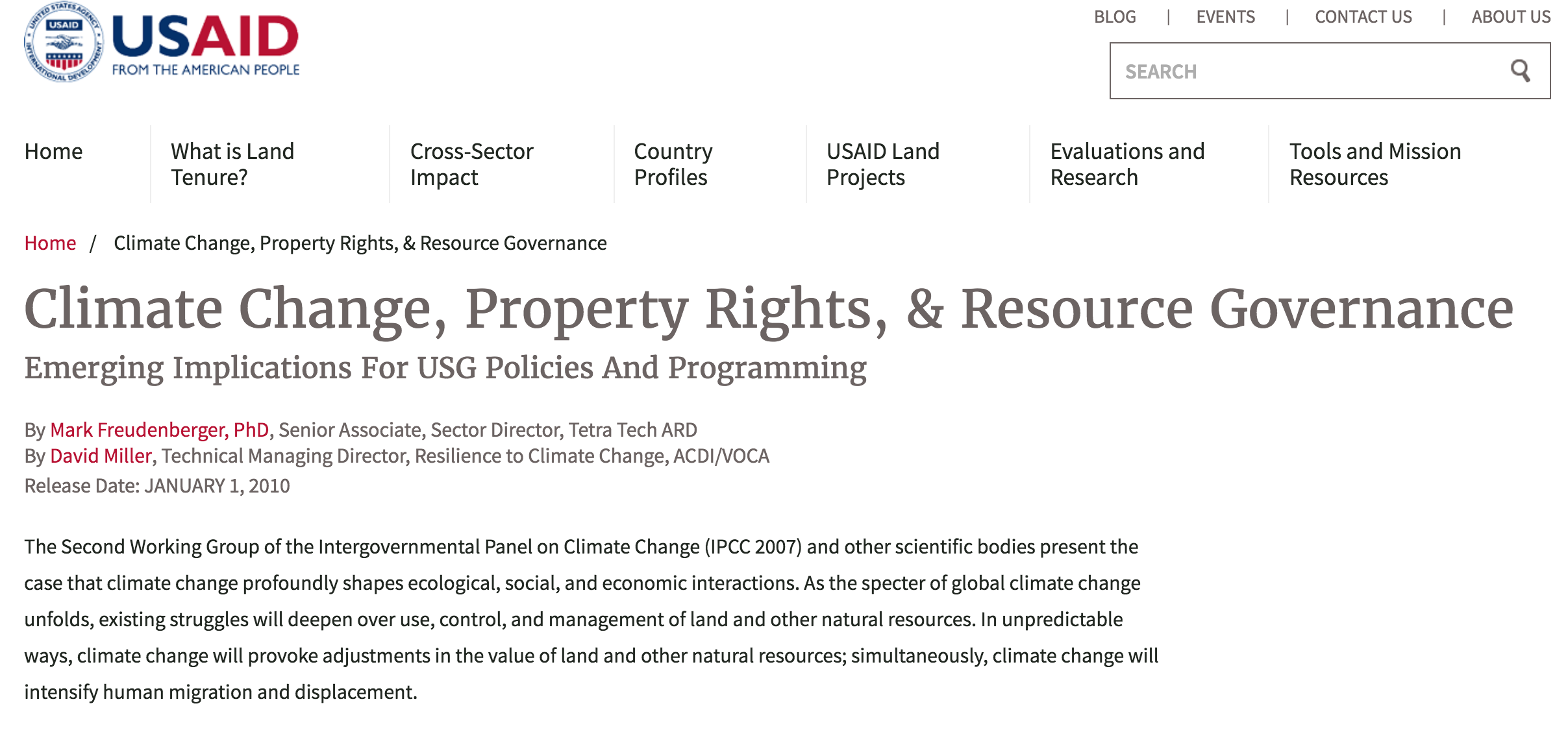Resource information
The Second Working Group of the Intergovernmental Panel on Climate Change (IPCC 2007) and other scientific bodies present the case that climate change profoundly shapes ecological, social, and economic interactions. As the specter of global climate change unfolds, existing struggles will deepen over use, control, and management of land and other natural resources. In unpredictable ways, climate change will provoke adjustments in the value of land and other natural resources; simultaneously, climate change will intensify human migration and displacement.
| Climate change and associated policy responses will cause progressive, extreme and unpredictable shifts in the value of land and natural resources. |
| Climate change and societal responses will disrupt existing tenure regimes by contributing to the forces that drive migration. |
| Tenure considerations will be crucial to the equitable distribution of benefits and the management of transaction costs in mitigation efforts. |
| Responses to climate change will attenuate current land tenure claims and property rights of women, poor and marginalized peoples. |
These forces will invariably destabilize governance and property rights regimes, spur the evolution of both statutory and customary tenure arrangements, and open the door for powerful actors to expand their claims on land and other natural resources. Similarly, climate mitigation initiatives, such as carbon sequestration policies and programs, may profoundly alter institutions of governance and property rights. In some cases, promising mitigation initiatives like reduced emissions from deforestation and forest degradation in developing countries (REDD) may lead to the expropriation of land and other natural resources from poor and vulnerable peoples. In both climate change adaptation and mitigation, contentious struggles for access and control of resources may turn violent unless stakeholders from the local to the international scale engage in open and transparent processes to negotiate new rules of access to land and other natural resources. Dispute resolution must go hand-in-hand with policies to restructure both statutory and customary tenure,
National and international policy makers are beginning to explore the place of property rights and resource tenure in the discussions of climate change adaptation and mitigation strategies. International donors like USAID can play an important role in working with host country governments and civil society to integrate property rights and resource governance considerations into policies and programs to increase resilience to the impacts of climate change, and at the same time, foster mitigation activities. This issue paper presents a framework for categorizing analysis of the interface between climate change, governance, and property rights, and it describes ways for USAID to incorporate tenure considerations into climate change adaptation and mitigation initiatives.


